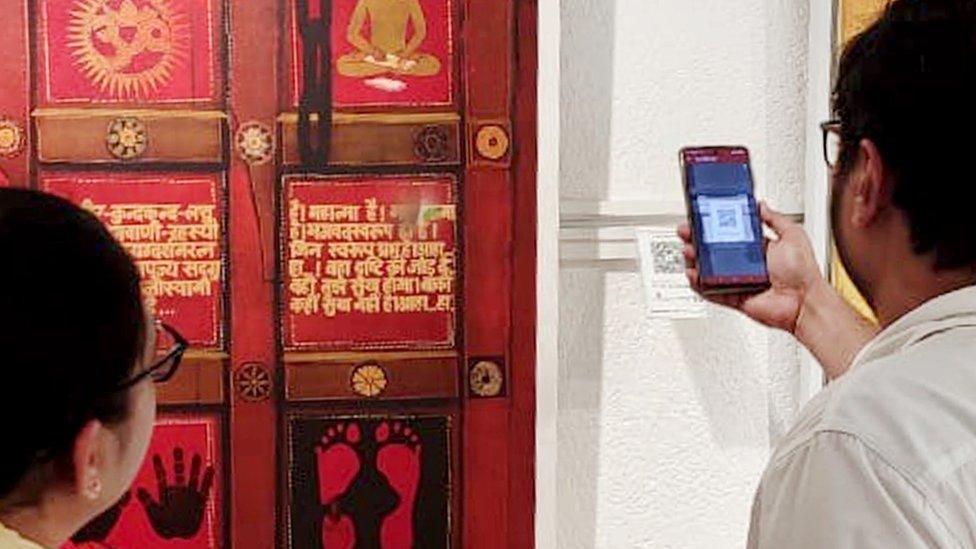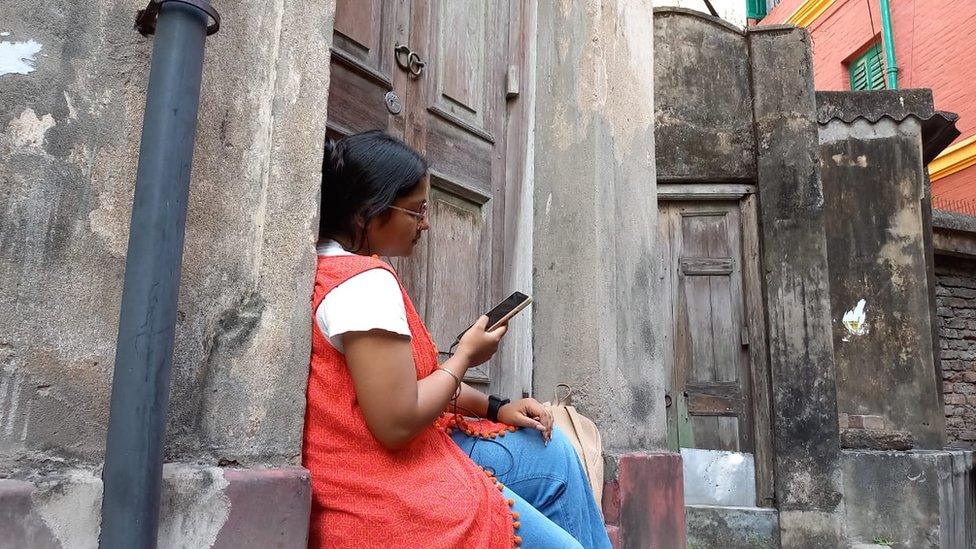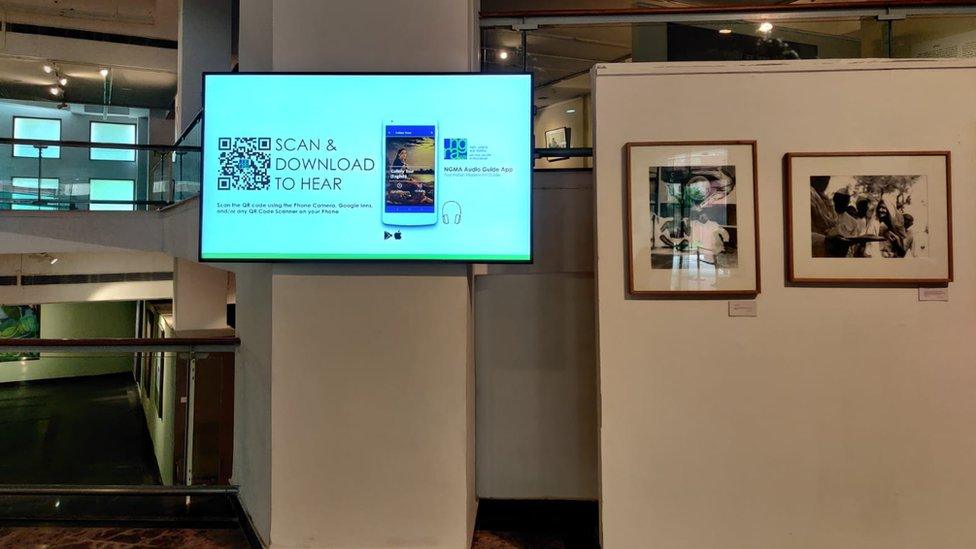The apps making Indian monuments more accessible
- Published

Users say these apps are helping them learn about historical monuments in fun ways
Kolkata-based Shital Ganeriwal enjoys learning about her city's history and culture.
To get her fix of learning, she tunes into an audio app and "enjoys the places and narratives coming alive around her".
The 31-year-old is currently using Wnder - an audio app started by the heritage walks company, Immersive Trails - to learn about some of the oldest monuments and areas in her hometown in the eastern Indian state of West Bengal.
Ms Ganeriwal is among several history enthusiasts in India who are using audio apps to deepen their understanding about the country's past. Apps like Wnder, Augtraveler, HopOn India and Storytrails offer multimedia tours of historical places, coupled with audio narration, to create an immersive experience.
Wnder, the brainchild of a Kolkata-based archaeologist Tathagata Neogi and linguistic anthropologist Chelsea McGill, offers five curated heritage walks in the city. A recording, done by specialised voice actors, narrates the history of the area to them.
Starting May, tourists will also be able to undertake an augmented reality tour with 360-degree photographs.

Sreejeeta Saha is among many in India tuning into audio apps
"The inspiration for the project came from a US-based app called Detour, which is sadly no longer available," says Mr Neogi. "We were planning to create something similar for the Indian market as far back as 2017. It took six years of planning and fundraising to make it happen."
Augtraveler, offers virtual multimedia tours of World Heritage sites in India. There's audio narration, 360 degree imagery, augmented reality based models that visitors can interact with and onscreen text.
HopOn India has 116 tours live on its app across 14 cities. The app can be used on physical walks, as it moves the user across a map onscreen, tracking them through GPS and prompting them to pause or move on as needed at locations. There are also virtual tours where audio narration is accompanied by pop-up images of the locations.
Founders of the apps say that the reason for creating them was to accurately represent India's history at various tourist spots. Many guides in India have inaccurate knowledge about the sites, charge hefty prices and sometimes have trouble communicating information due to language barriers.
"At Humayun's Tomb in Delhi, many people were not able to climb the stairs to see the interiors of the monument. Our [app] experiences can help here," says Pankaj Manchanda, founder of Augtraveler. He says that self-guidance devices available at monuments tend to be expensive, limited in number or are not scalable.
For Mr Neogi too, cutting down the cost of accessing tourist places was important. So, walks on the Wnder app are priced at 199 rupees ($2.5; £2) for a year's access, while the app itself is free to download.
But launching these apps in a new market like India is challenging and user numbers remain low, founders say.
"Not enough people were interested in the stories and we had no budget to market them. So we decided to move into spaces where people come with the intent to hear," says Shalini Bansal, co-founder of HopOn.

Audio-app platforms are also helping art galleries digitise their exhibitions
So many of these apps are tying up with museums and art galleries to help them digitise their exhibitions and walking tours.
Wnder and HopOn have created software solutions platforms that help museums and art galleries digitise their visitor experience. It involves leasing out their technology to create apps and websites that have audio-visual information about exhibits. Visitors can scan a QR code to access the information for free.
HopOn's offerings can be found at the National Museum in Delhi and the National Gallery of Modern Art in Delhi, Mumbai, and Bengaluru cities. Augtraveler has teamed up with knowledge partners and government departments to curate exclusive tours of World Heritage Sites in India on its own platform.
To ensure that they share accurate historical information, these apps hire or partner with domain experts to do the research.
"For us, the walk leader does the research to make it as personalised as possible," says Mr Neogi. "We factor in primary sources of information, such the British libraries' digitised material including East India Company's documents and newspaper archives. We also work with communities to learn oral histories and record memories."
Users say that these apps are helping them explore the cities they live in in new and interesting ways.
Sreejeeta Saha, who lives in Kolkata and uses Wnder, smiles when she talks about the most fascinating piece of trivia she learnt through the app:
"Fearing that the Japanese would attack the [city's] Victoria Memorial [during World War II] from the air, people covered the monument with cow dung."
Rushati Mukherjee is a Kolkata-based independent journalist

Read more India stories from the BBC:
